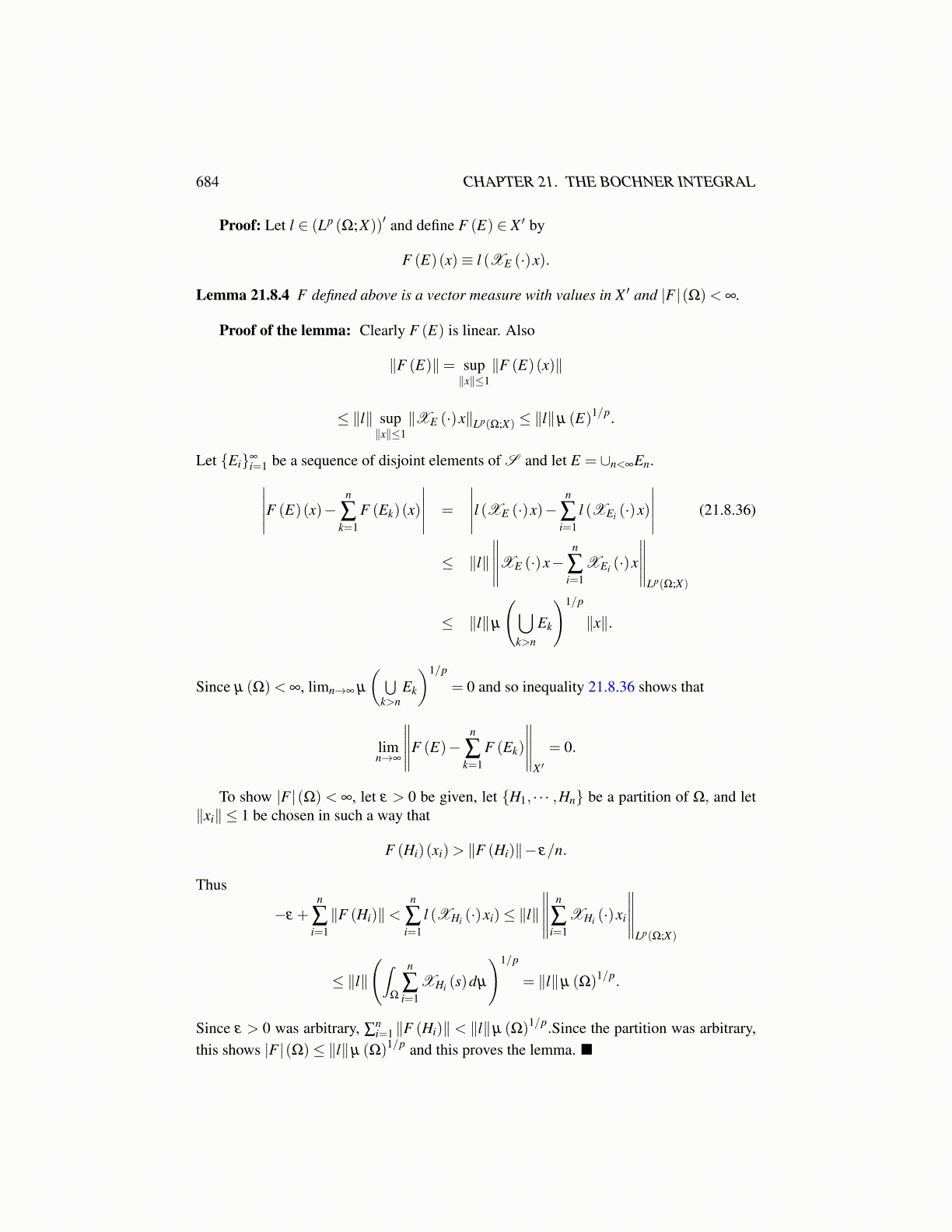
684 CHAPTER 21. THE BOCHNER INTEGRAL
Proof: Let l ∈ (Lp (Ω;X))′ and define F (E) ∈ X ′ by
F (E)(x)≡ l (XE (·)x).
Lemma 21.8.4 F defined above is a vector measure with values in X ′ and |F |(Ω)< ∞.
Proof of the lemma: Clearly F (E) is linear. Also
∥F (E)∥= sup∥x∥≤1
∥F (E)(x)∥
≤ ∥l∥ sup∥x∥≤1
∥XE (·)x∥Lp(Ω;X) ≤ ∥l∥µ (E)1/p.
Let {Ei}∞i=1 be a sequence of disjoint elements of S and let E = ∪n<∞En.∣∣∣∣∣F (E)(x)−
n
∑k=1
F (Ek)(x)
∣∣∣∣∣ =
∣∣∣∣∣l (XE (·)x)−n
∑i=1
l (XEi (·)x)
∣∣∣∣∣ (21.8.36)
≤ ∥l∥
∥∥∥∥∥XE (·)x−n
∑i=1
XEi (·)x
∥∥∥∥∥Lp(Ω;X)
≤ ∥l∥µ
(⋃k>n
Ek
)1/p
∥x∥.
Since µ (Ω)< ∞, limn→∞ µ
( ⋃k>n
Ek
)1/p
= 0 and so inequality 21.8.36 shows that
limn→∞
∥∥∥∥∥F (E)−n
∑k=1
F (Ek)
∥∥∥∥∥X ′
= 0.
To show |F |(Ω) < ∞, let ε > 0 be given, let {H1, · · · ,Hn} be a partition of Ω, and let∥xi∥ ≤ 1 be chosen in such a way that
F (Hi)(xi)> ∥F (Hi)∥− ε/n.
Thus
−ε +n
∑i=1∥F (Hi)∥<
n
∑i=1
l (XHi (·)xi)≤ ∥l∥
∥∥∥∥∥ n
∑i=1
XHi (·)xi
∥∥∥∥∥Lp(Ω;X)
≤ ∥l∥(∫
Ω
n
∑i=1
XHi (s)dµ
)1/p
= ∥l∥µ (Ω)1/p.
Since ε > 0 was arbitrary, ∑ni=1 ∥F (Hi)∥ < ∥l∥µ (Ω)1/p.Since the partition was arbitrary,
this shows |F |(Ω)≤ ∥l∥µ (Ω)1/p and this proves the lemma.